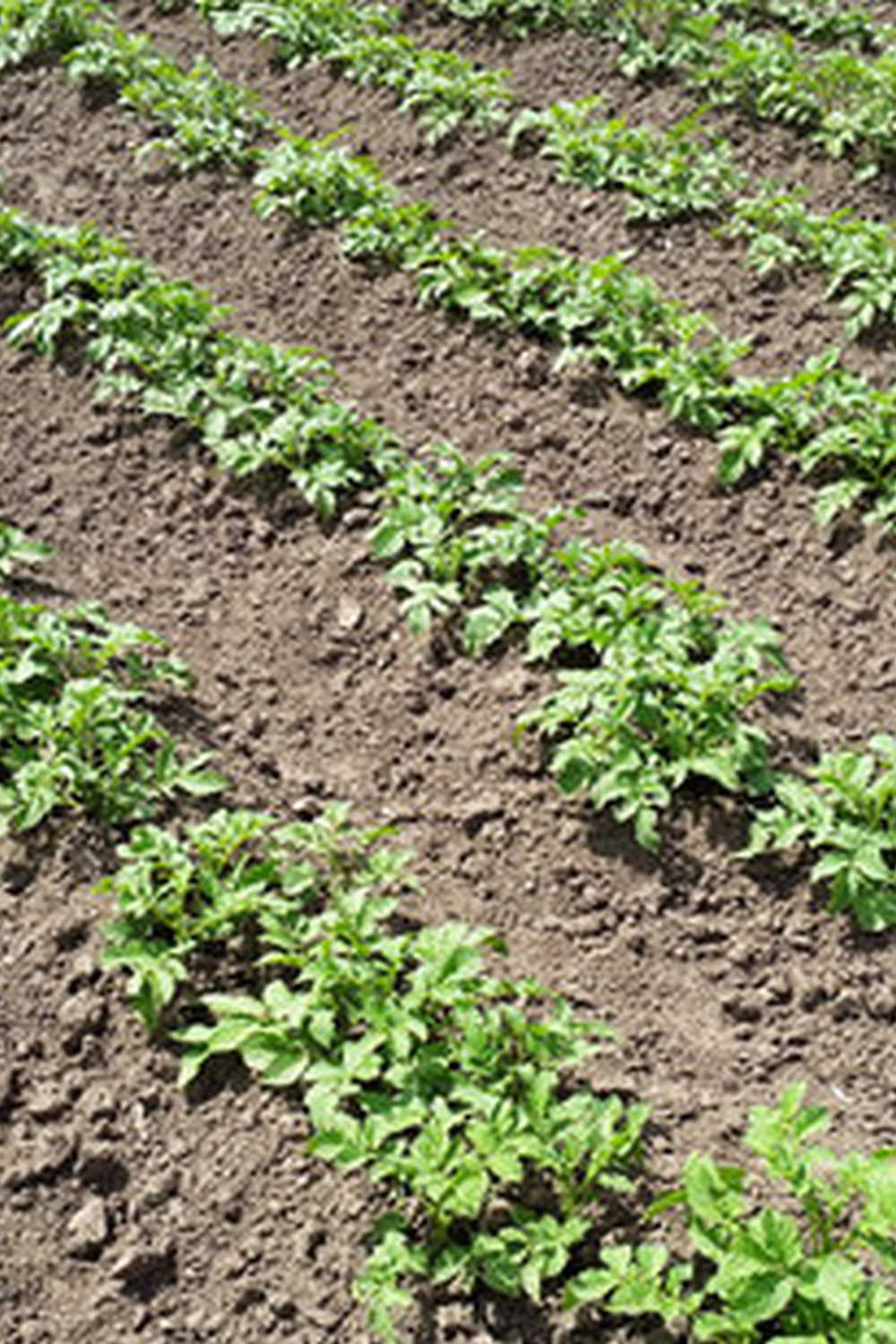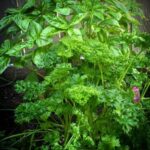Are earthworms good for vegetable gardens? Earthworms play a crucial role in maintaining the health and fertility of the soil in vegetable gardens. Their actions benefit plants by enhancing soil structure, providing natural fertilizers, improving soil aeration, aiding in pest control, and contributing to overall soil health. In this article, we will delve into the significance of earthworms in vegetable gardening and explore the various ways they positively impact garden ecosystems.
One of the most pressing questions for gardeners is whether earthworms are beneficial for their vegetable gardens. The answer is a resounding yes. Earthworms are essential for cultivating thriving and productive vegetable gardens due to their invaluable contributions to soil health and plant growth.
In the following sections, we will discuss how earthworms improve soil structure and fertility, serve as natural fertilizers by enriching the soil with nutrients, enhance soil aeration and drainage, aid in controlling pests and diseases, and provide tips on how to cultivate an environment that supports earthworm populations in vegetable gardens. By understanding the importance of these little creatures in your garden ecosystem, you can harness their benefits to achieve a bountiful harvest.
The Role of Earthworms in Soil Health
Earthworms are a valuable asset to any vegetable garden, playing a crucial role in maintaining soil health. These fascinating creatures work tirelessly beneath the surface, helping to improve soil structure and fertility. One of the key ways in which they accomplish this is through their burrowing activity. As they move through the soil, earthworms create channels that improve aeration and water infiltration, reducing the risk of waterlogging and increasing nutrient availability for plants.
In addition to their physical impact on soil structure, earthworms also serve as natural fertilizers. Through their consumption of organic matter and soil particles, earthworms break down these materials into nutrient-rich castings. These castings contain higher levels of nitrogen, phosphorus, and potassium than the surrounding soil, providing an immediate source of nutrition for vegetable plants. This process contributes to nutrient cycling and helps enrich the soil over time.
Studies have shown that gardens with healthy earthworm populations tend to have more productive and resilient plants. The presence of earthworms can lead to better plant growth, increased crop yields, and improved overall garden health. For these reasons, many gardeners actively introduce or cultivate earthworm populations in their vegetable gardens to take advantage of the benefits they provide.
| Benefit | Impact |
|---|---|
| Improvement of Soil Structure | Enhanced aeration and drainage; reduced risk of waterlogging |
| Natural Fertilization | Contribution to nutrient cycling; enrichment of soil with essential nutrients |
| Enhanced Plant Productivity | Better plant growth; increased crop yields; improved overall garden health |
Earthworms as Natural Fertilizers
Earthworms play a vital role in natural fertilization within vegetable gardens. Their contribution to nutrient cycling and soil enrichment cannot be understated. In this section, we will explore how earthworms act as natural fertilizers, benefiting the overall health of the garden.
Nutrient Cycling
Earthworms are known for their ability to break down organic matter such as leaves, plant debris, and compost. As they consume this material, they excrete nutrient-rich waste called castings. These castings are a valuable source of nitrogen, phosphorus, potassium, and other essential nutrients that plants need for healthy growth. The process of earthworm digestion and casting production effectively recycles nutrients that would otherwise remain locked up in organic matter.
Soil Enrichment
Another way earthworms contribute to natural fertilization is through their burrowing activity. As earthworms tunnel through the soil, they create channels that help to aerate and loosen the soil structure. This allows for better water infiltration and root penetration. Additionally, these channels also provide pathways for beneficial microorganisms to thrive and aid in the breakdown of organic matter. The combined effect of earthworm activity leads to improved soil fertility and overall health in the vegetable garden.
Earthworms and Soil Aeration
Earthworms, often referred to as nature’s gardeners, play a crucial role in vegetable gardens by enhancing soil aeration and drainage. As these slimy creatures tunnel through the soil, they create passageways that allow air and water to penetrate deeply into the ground. This continuous movement of earthworms helps loosen compacted soil, improving its structure and promoting better drainage. Therefore, the presence of earthworms is essential for maintaining healthy soil conditions in vegetable gardens.
In addition to their burrowing activities, earthworms also ingest organic matter and excrete nutrient-rich castings. These castings contain essential nutrients such as nitrogen, phosphorus, and potassium, which are beneficial for plant growth. As earthworms consume decaying plant material and break it down into fine particles, they contribute to nutrient cycling and enrich the soil with valuable minerals. This natural fertilizer produced by earthworms not only boosts soil fertility but also promotes the overall health of vegetable plants.
Furthermore, the movements of earthworms within the soil help prevent compaction and create channels for air and water to reach plant roots. Well-aerated soil is vital for root development as it allows oxygen to reach the roots and facilitates nutrient absorption. By enhancing soil aeration, earthworms ensure that vegetable plants have access to enough oxygen for optimal growth. In this way, earthworms indirectly contribute to improved plant vitality and yield in vegetable gardens.
Earthworms and Pest Control
Earthworms play a crucial role in pest and disease control within vegetable gardens. Their presence can help maintain a healthy and balanced ecosystem, reducing the need for chemical interventions. Here are some ways earthworms contribute to pest control:
- Biological Pest Control: Earthworms consume organic matter, including decaying plant materials and animal waste. By doing so, they limit the food sources available to pests like slugs, snails, and insect larvae that feed on decomposing organic matter.
- Soil Health Improvement: Healthy soil resulting from earthworm activity can support beneficial organisms such as predatory insects, nematodes, and microorganisms that serve as natural enemies to garden pests.
- Enhanced Plant Resistance: The enrichment of soil with earthworm castings increases nutrient availability for plants, leading to stronger and more resilient crops that are better able to withstand pest attacks.
In addition to pest control, earthworms also aid in disease management within vegetable gardens. Their burrowing activities promote soil aeration and drainage, which can reduce the prevalence of soil-borne diseases by creating conditions less favorable for pathogens.
By creating a favorable environment for earthworms in vegetable gardens, gardeners can take advantage of these natural pest control mechanisms while minimizing the need for synthetic pesticides or fungicides. Incorporating organic mulches and avoiding excessive soil disturbance can help sustain and increase the population of earthworms in the garden, promoting a healthy balance between pests, beneficial organisms, and plants.
Cultivating Earthworms in Vegetable Gardens
Earthworms play a crucial role in maintaining soil health, and their presence in vegetable gardens can significantly benefit the overall productivity of the crops. Here are some tips on how to create a friendly environment for earthworms in your vegetable garden:
- Provide organic matter: Earthworms thrive in soil that is rich in organic matter such as compost, decaying leaves, and other plant material. Adding organic matter to the soil provides food for earthworms and enhances their habitat.
- Avoid chemical pesticides and fertilizers: Chemical pesticides and fertilizers can be harmful to earthworms. Opt for natural alternatives and organic fertilizers to maintain a healthy environment for earthworms.
- Maintain proper moisture levels: Earthworms require moist soil to survive. Be mindful of watering your vegetable garden to ensure that the soil remains moist but not waterlogged, which can suffocate the earthworms.
Creating a friendly environment for earthworms in your vegetable garden not only benefits the earthworm population but also enhances the overall health of the soil, leading to better plant growth and harvest.
By taking these simple steps to cultivate an environment that is favorable for earthworms, you can ensure that they are thriving in your vegetable garden, contributing to improved soil structure, fertility, and nutrient cycling. Ultimately, embracing the presence of earthworms is essential for achieving success in your vegetable gardening efforts.
The Best Earthworm Species for Vegetable Gardens
Earthworms play a crucial role in maintaining soil health and fertility, making them valuable allies for vegetable gardeners. However, not all earthworm species are equally effective in promoting plant growth and enhancing soil structure. In this section, we will identify the most beneficial earthworm species for vegetable gardening.
Red Wiggler Worms
One of the most popular earthworm species for vegetable gardens is the red wiggler worm (Eisenia fetida). These worms are well-known for their ability to consume organic matter and produce nutrient-rich castings, which can significantly improve soil fertility. Red wigglers thrive in compost bins and can be added directly to garden beds to help break down organic material and release valuable nutrients essential for plant growth.
European Nightcrawlers
European nightcrawlers (Eisenia hortensis) are another excellent choice for vegetable gardens. These burrowing worms create permanent tunnels in the soil, promoting better aeration and water infiltration. Their castings are rich in nutrients and microbial activity, supporting healthy root development and overall plant vigor. European nightcrawlers are particularly beneficial for heavy clay soils as they can effectively break up compacted areas and improve drainage.
African Nightcrawlers
African nightcrawlers (Eudrilus eugeniae) are tropical earthworm species known for their voracious appetite and rapid reproduction rate. They excel at breaking down organic matter, producing large quantities of nutrient-rich castings that enhance soil fertility. African nightcrawlers prefer warmer temperatures, making them ideal for regions with mild or tropical climates.
By selecting the right earthworm species for your vegetable garden, you can maximize their benefits and create an optimal environment for plant growth. Whether you choose red wigglers, European nightcrawlers, or African nightcrawlers, integrating these beneficial earthworms into your garden ecosystem can lead to healthier plants and higher yields.
Maintaining Earthworm Population
Maintaining a healthy earthworm population is crucial for the overall success of a vegetable garden. Earthworms play a vital role in improving soil fertility and structure, as well as aiding in nutrient cycling, soil aeration, and pest control. To sustain and increase the earthworm population in vegetable gardens, there are several practices that gardeners can implement.
One effective practice for maintaining earthworm population is to minimize the use of chemical fertilizers and pesticides. Chemical-based products can be harmful to earthworms and may lead to a decline in their numbers. Instead, organic fertilizers and natural pest control methods should be utilized to create an environment that is conducive to earthworm growth and reproduction.
Furthermore, mulching is another beneficial practice for promoting a healthy earthworm population. The use of organic mulch such as straw, compost, or leaves provides earthworms with food sources and creates a favorable habitat for them. As earthworms consume the decaying organic matter in the mulch, they contribute to nutrient cycling and help enrich the soil with valuable nutrients.
Lastly, ensuring proper moisture levels in the soil is essential for sustaining earthworm populations. Adequate moisture encourages earthworm activity and reproduction. Gardeners should aim to keep the soil moist but not waterlogged, as excessively wet conditions can negatively impact the survival of earthworms.
| Practices | Benefits |
|---|---|
| Minimize chemical fertilizers and pesticides | Prevents harm to earthworms |
| Utilize organic mulch | Provides food sources and habitat for earthworms |
| Maintain proper moisture levels | Encourages earthworm activity and reproduction |
By implementing these practices, gardeners can sustain and increase the population of earthworms in their vegetable gardens, leading to improved soil health and better yields for their crops.
Conclusion
In conclusion, the presence of earthworms in vegetable gardens is undeniably beneficial for the overall health and productivity of the soil. Their role in improving soil structure, enhancing fertility, and contributing to nutrient cycling cannot be overstated. Earthworms also play a crucial part in maintaining soil aeration and drainage, as well as controlling pests and diseases, ultimately creating a more conducive environment for plant growth.
It is clear that earthworms are indeed good for vegetable gardens. Their natural fertilizing abilities and pest control measures make them valuable allies for gardeners looking to nurture healthy and bountiful crops. Cultivating earthworm-friendly environments and selecting the most beneficial species can further amplify their positive impact on vegetable gardens.
Therefore, it is highly recommended for gardeners to prioritize maintaining and increasing earthworm populations within their vegetable gardens. By following best practices for cultivating earthworms and adopting sustainable gardening methods, gardeners can ensure the continued presence of these helpful creatures for a successful harvest year after year. In essence, earthworms are an indispensable asset that every gardener should welcome into their vegetable garden with open arms.

If you’re looking to get into vegetable gardening, or are just looking for some tips on how to make your current garden better, then you’ve come to the right place! My name is Ethel and I have been gardening for years. In this blog, I’m going to share with you some of my best tips on how to create a successful vegetable garden.





